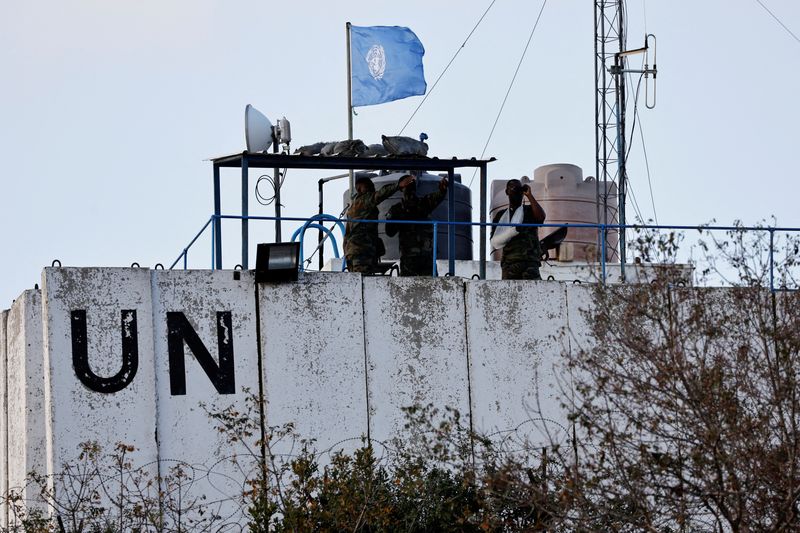US does not want to see UN peacekeepers in Lebanon put in danger, State Dept says
2024.10.07 15:20
By Humeyra Pamuk
WASHINGTON (Reuters) – The United States does not want United Nations peacekeepers in Lebanon to be put in danger in any way, including being attacked by Israel, the State Department said on Monday, adding that the mission plays an important role in establishing security in the country.
State Department spokesperson Matthew Miller also said the U.S. assesses that Israel’s ground operations in Lebanon so far continue to be limited as Israeli forces looked poised to expand ground raids into south Lebanon on the first anniversary of the Gaza war.
He added that Washington has made clear to Israel that it wants to see roads to Beirut’s airport continue to be operated.
The U.N. Interim Force in Lebanon (UNIFIL) said in a statement on Sunday it was deeply concerned by what it called Israel’s “recent activities” adjacent to the mission’s position inside Lebanon.
“We don’t want to see UNIFIL forces put in danger in any way. UNIFIL forces play an important role in establishing security in Lebanon,” Miller told reporters on Monday.
The mission is mandated by the Security Council to help the Lebanese army keep the area free of weapons and armed personnel other than those of the Lebanese state. That has sparked friction with Iran-backed Hezbollah, which effectively controls southern Lebanon.
The Israeli military asked U.N. peacekeepers last week to prepare to relocate more than 5 km (3 miles) from the border between Israel and Lebanon – known as the Blue Line – “as soon as possible, in order to maintain your safety,” according to an excerpt from the message, seen by Reuters.
On Thursday, the U.N. peacekeeping chief said the peacekeepers remain in place and provide the only communications link between the countries’ militaries.
The focus of the war has increasingly shifted north to Lebanon where Israeli forces have been exchanging fire with Hezbollah since the Iranian-backed group launched a barrage of missiles in support of Hamas on Oct. 8.

What began as limited daily exchanges has escalated into bombardments of Hezbollah’s stronghold in Beirut and a ground offensive into border villages designed to stamp out its fighters there and allow tens of thousands of Israelis evacuated from their homes in the country’s north to return.
Israel’s assault, which has killed over 1,000 people in the past two weeks, has triggered a mass flight from southern Lebanon where more than 1 million people have been displaced.








